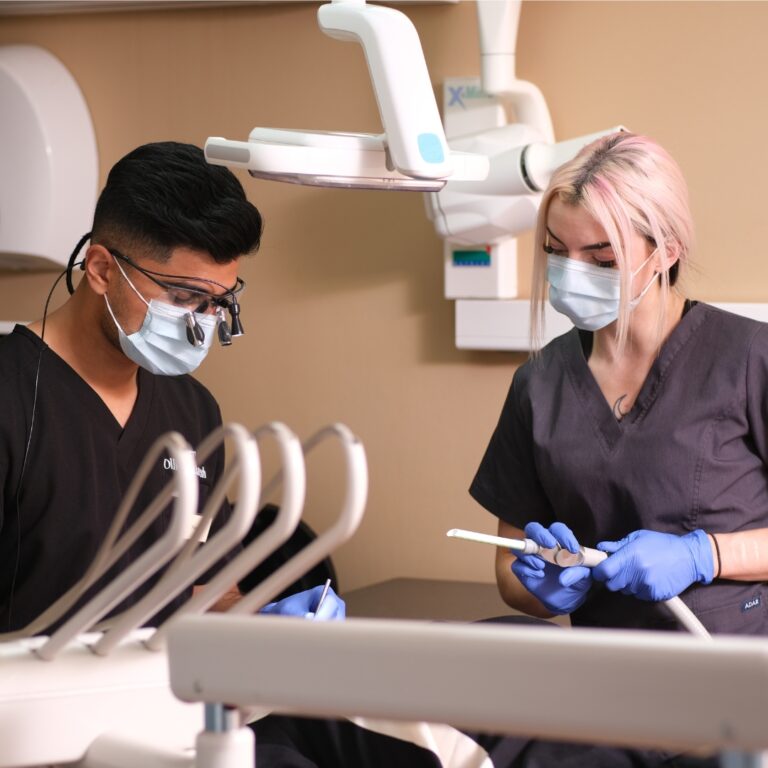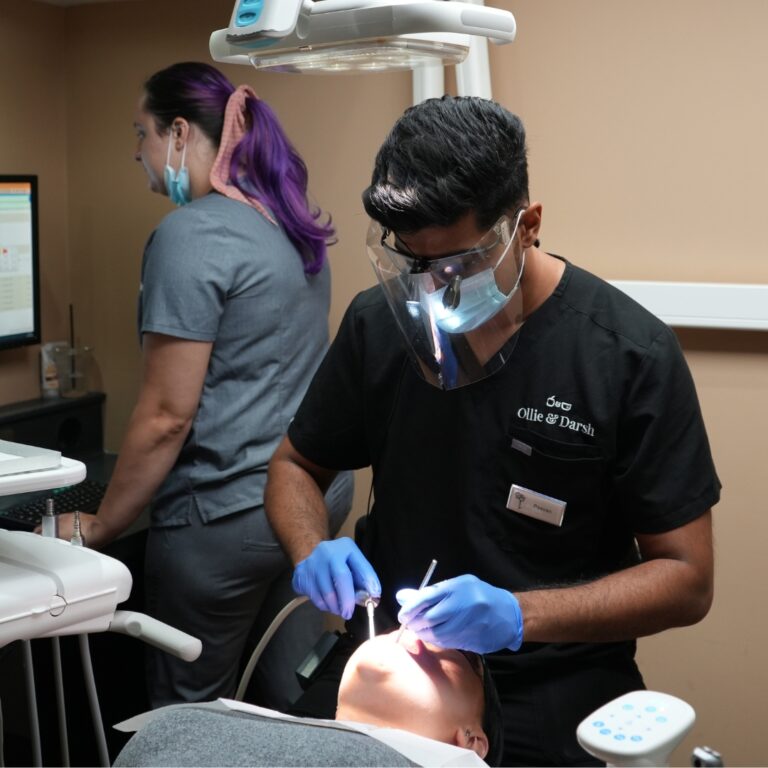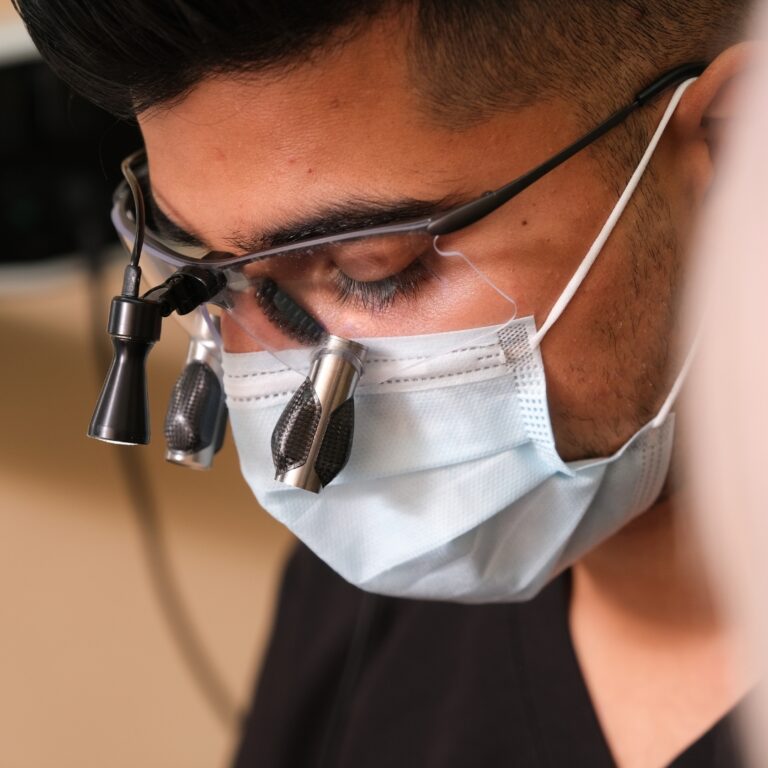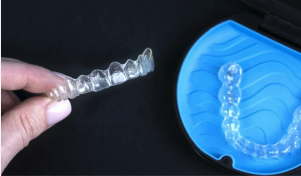
Airflow Tooth Cleaning & Polishing
Removing plaque and stains from your teeth doesn’t have to involve a drill. With air polishing, your dentist may be able to achieve the same results without having to use any potentially intimidating-looking equipment!
What is Air Polishing for Teeth and How Does it Work?
As the name suggests, tooth air polishing – also known as airflow cleaning and air abrasion – is a technique that allows dentists to clean small areas of decay or stains using a fine stream of particles, made up of powder particles (typically aluminium oxide, silica or sodium bicarbonate).
This compressed jet is targeted at the areas of your teeth that require polishing; think of it as like a tiny sandblaster for your teeth!
Once plaque has been dislodged from the surface of your teeth, it is suctioned away through a thin tube in your mouth.

What Does it Feel Like to have your Teeth Air Polished?
More or less how you’d imagine – like a stream of air is being directed across your teeth! Patients generally find it to be less painful than drill-based techniques, although it should be noted that the air jet can cause a little sensitivity at the time of the procedure.

How Long Does it Take?
Air polishing for teeth is a pretty simple procedure. However, it may take a little longer than using a drill, depending on the amount of polishing required.

What Results Should You Expect?
Air polishing isn’t a new technology. It’s based on a concept invented back in 1945, and has been readily available to dental patients since the late 1970s.
Since then, it has been proven to be extremely effective in removing plaque and stains – such as those caused by tea, coffee, red wine and tobacco – from the front and back of your teeth.

Are there any Limitations?
As with any dental procedure, the effectiveness of airflow teeth cleaning will depend on your specific requirements. It may not be suitable in all situations. For instance:
- It is not recommended for cleaning deep cavities, or those that have formed between teeth.
- If hard enamel must be removed to access the decay, air abrasion won’t be up to the task.
Our friendly team can advise on whether or not airflow cleaning is the best option for your teeth. Get in touch with us today to book an appointment.
